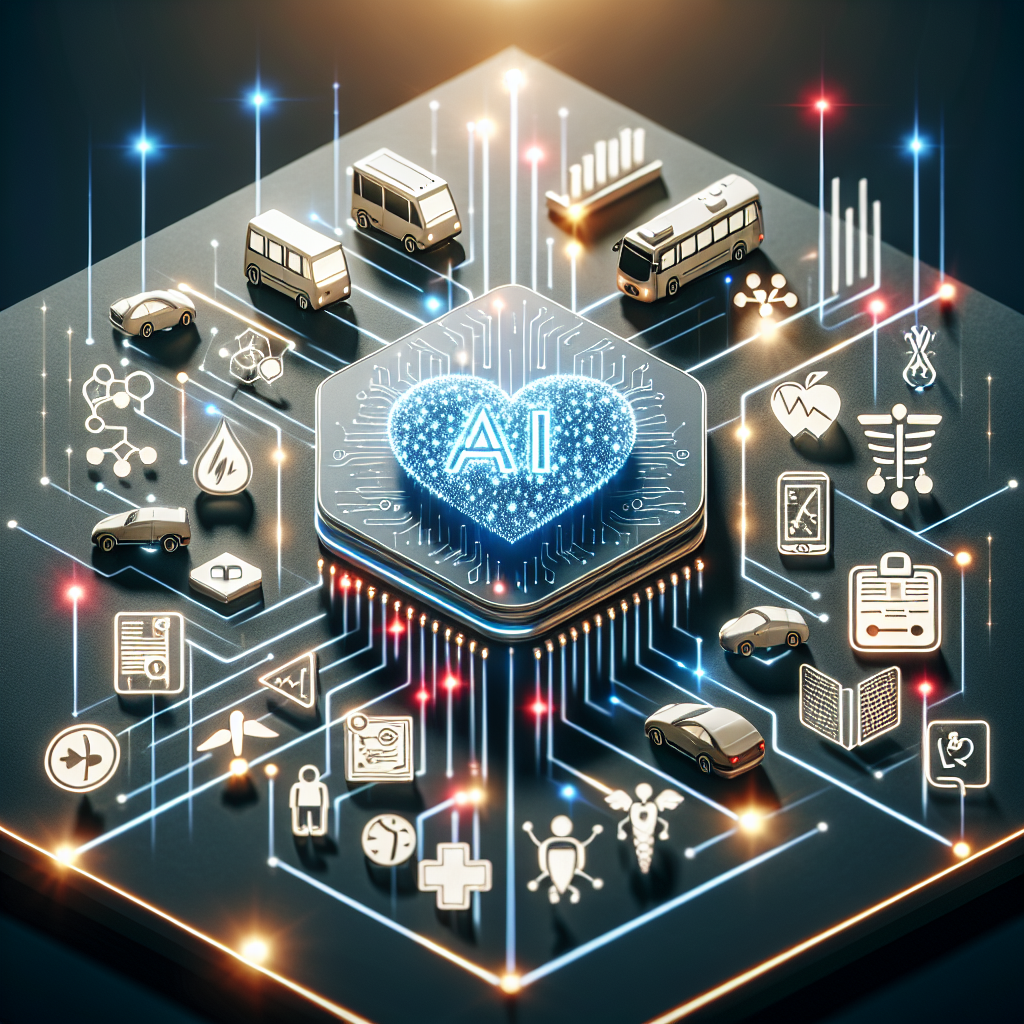Artificial General Intelligence (AGI) has long been a goal of the field of artificial intelligence, aiming to develop machines that can perform any intellectual task that a human can. While still a theoretical concept, AGI has the potential to revolutionize many aspects of society by automating complex tasks and enabling new capabilities that were previously thought to be the realm of science fiction.
In recent years, there have been significant advances in AI technology that have brought AGI closer to reality. These advances have led to the development of powerful machine learning algorithms that can analyze vast amounts of data and learn to perform tasks with human-like proficiency. As a result, researchers and companies are increasingly exploring the potential applications of AGI in various industries.
Real-World Applications of AGI
1. Healthcare: AGI has the potential to revolutionize healthcare by enabling more accurate diagnosis and treatment of diseases. For example, AGI algorithms can analyze medical imaging data to detect early signs of diseases such as cancer, enabling doctors to provide more timely and effective treatment. AGI can also be used to develop personalized treatment plans based on an individual’s genetic makeup and medical history.
2. Finance: In the finance industry, AGI can be used to analyze market trends and make predictions about stock prices and other financial instruments. This can help investors make more informed decisions and optimize their investment strategies. AGI can also be used to detect fraudulent transactions and prevent financial crimes.
3. Transportation: AGI can revolutionize transportation by enabling autonomous vehicles to navigate complex environments and interact with other vehicles and pedestrians. This can improve road safety and reduce traffic congestion. AGI can also be used to optimize transportation networks and logistics operations, leading to more efficient and cost-effective transportation systems.
4. Manufacturing: AGI can be used to automate manufacturing processes and improve the efficiency of production lines. AGI algorithms can analyze data from sensors and cameras to detect defects in products and optimize the production process. This can help manufacturers reduce waste and improve product quality.
5. Customer Service: AGI can be used to develop virtual assistants that can interact with customers and provide personalized assistance. These virtual assistants can answer customer queries, recommend products and services, and even handle transactions. This can improve the customer experience and reduce the workload of human customer service agents.
Impact of AGI
The widespread adoption of AGI has the potential to bring about significant social and economic changes. While AGI promises to automate many tasks and improve efficiency in various industries, it also raises concerns about job displacement and the concentration of power in the hands of a few companies that control AGI technology. To address these concerns, policymakers and researchers are exploring ways to ensure that AGI is developed and deployed in a responsible and ethical manner.
Frequently Asked Questions about AGI
1. What is the difference between AGI and narrow AI?
AGI refers to machines that can perform any intellectual task that a human can, while narrow AI refers to machines that are designed to perform specific tasks, such as image recognition or natural language processing. AGI is more flexible and adaptable than narrow AI, but it is also more challenging to develop.
2. How close are we to achieving AGI?
While significant progress has been made in AI technology in recent years, achieving AGI remains a challenging goal. Researchers are still working on developing algorithms and systems that can learn and adapt to new tasks in a human-like manner. It is difficult to predict when AGI will be achieved, but many experts believe that it is still several years or even decades away.
3. What are the ethical implications of AGI?
AGI raises many ethical concerns, including issues related to job displacement, privacy, and the potential misuse of AI technology. Policymakers and researchers are working to address these concerns by developing guidelines and regulations to ensure that AGI is developed and deployed in a responsible and ethical manner.
4. How can AGI benefit society?
AGI has the potential to revolutionize many aspects of society by automating complex tasks, improving efficiency, and enabling new capabilities. AGI can help improve healthcare outcomes, optimize transportation systems, enhance customer service, and drive innovation in various industries. Overall, AGI has the potential to bring about significant social and economic benefits.
In conclusion, AGI has the potential to revolutionize many aspects of society by enabling machines to perform tasks with human-like proficiency. While significant progress has been made in AI technology in recent years, achieving AGI remains a challenging goal that requires further research and development. As researchers and companies continue to explore the potential applications of AGI, it is important to consider the ethical implications and ensure that AGI is developed and deployed in a responsible and ethical manner. By harnessing the power of AGI, we can create a more efficient, innovative, and sustainable future for all.

